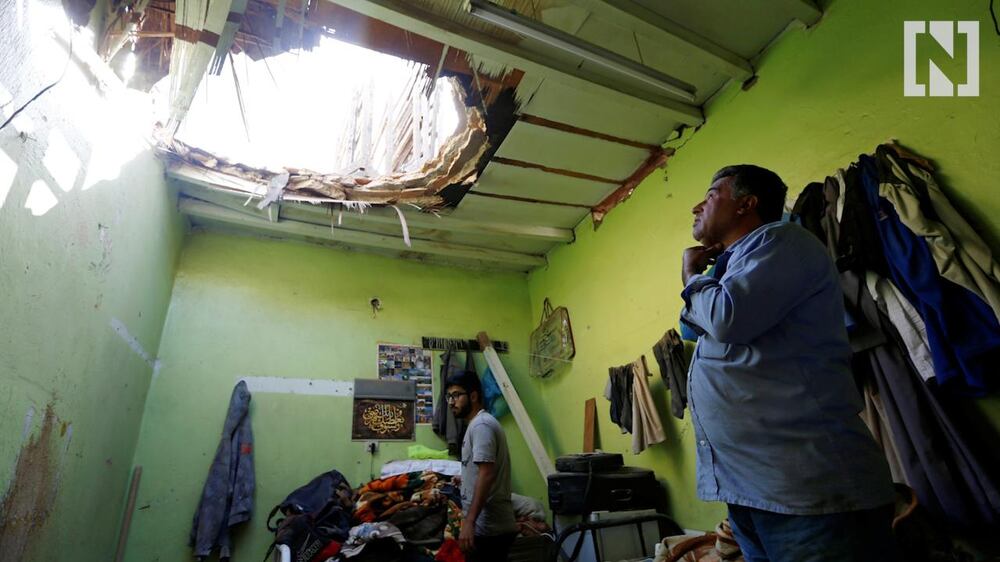The firing of seven ballistic missiles at Saudi Arabi by Yemen's rebels comes at a precarious time. Experts and former diplomats contend that the attack on Sunday, on the eve of the third anniversary of start of the war, is largely symbolic for the Houthis as a way to demonstrate military capabilities, but it could derail a new UN push to resume political talks.
Gerald Feierstein, the director for Gulf affairs at the Middle East Institute, cautioned against over-reading the attack. "The timing is related to the third anniversary of the Saudi-led intervention in Yemen, and each party is attempting to demonstrate on the military side that they are making progress and achieving their goals", said Mr Feierstein, a career US diplomat who last served in Yemen in 2013.
While the Saudi-led coalition says it is advancing in the north and Saada province, the rebel stronghold, "this was a message from the Houthis to demonstrate that they are far from defeated, that they can threaten Saudi security", he told The National.
The attack puts the United States in a tougher position as it pushes for political negotiations. Last week, Defence Secretary James Mattis pledged to work with Saudi Crown Prince Mohammed bin Salman in seeking an end to the war. The State Department on Monday condemned the Houthi attack, reiterating support for “the right of our Saudi partners to defend their borders”, but also urged a “return to political negotiations and move toward ending the war in Yemen”.
____________
Read more:
Saudi-led coalition says Iran supplied missiles fired at Riyadh
Attack on Saudi Arabia calls for a firm stance
____________
Peter Salisbury, a non-resident fellow who studies Yemen at the Arab Gulf States Institute in Washington, said the attack came amid “an uptick in back channel negotiations over an end to the conflict”.
“It could make it a lot harder," he said.
The United Nations' new special envoy to Yemen, Martin Griffiths arrived on his first trip to Sanaa on Saturday, while the Saudi crown prince is scheduled to meet UN Secretary General Antonio Guterres in New York this week, and US efforts have intensified via Oman to block arms smuggling to the Houthis by land and sea routes.
“This is the largest cross-border attack since the conflict started,” said Mr Salisbury.
Although Patriot defence systems were successful in intercepting the missiles, the attack leaves everyone in a sticky spot on how to move forward, he said.
Saudis say one killed by missile attack from Yemen

Another question looming over the attack is the role of Iran, and the response of the US administration in light of changes in President Donald Trump's team. The US president has picked Iran policy hawks Mike Pompeo and John Bolton as his new secretary of state and national security adviser respectively, with Mr Bolton to assume his post as soon as April 9.
The appointments of Mr Pompeo and Mr Bolton could bring “a more right-wing hawkish view, that views Yemen and a Saudi-Iran proxy conflict” in a way that prolongs the confrontation, said Mr Salisbury.
But it could also mean a new US approach behind a political process. Mr Feierstein said that beyond rhetoric, and counter-terrorism, the US has not done much on Yemen in the past 15 months.
While acknowledging the need for more pressure on Iran, the former US ambassador advocated for a US diplomatic push to promote a political process. "That is something that [outgoing secretary of state] Rex Tillerson hasn’t done much and that Mr Pompeo could be doing,” he said.
Separately, the White House announced on Monday the conclusion of the first trilateral meeting of national security advisers of the US, Saudi Arabia and the UAE. The meeting was held on Friday "to discuss issues of strategic importance to the three countries, including joint efforts to counter the Iranian regime’s malign influence and provocative behaviour", the White House said.
It said the meeting was attended by senior US officials from the state, defence and treasury departments and the intelligence community participated. The situation in Afghanistan was also discussed in a session attended by the Afghan national security adviser.






